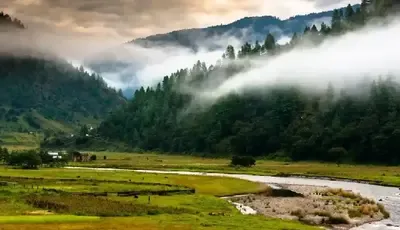
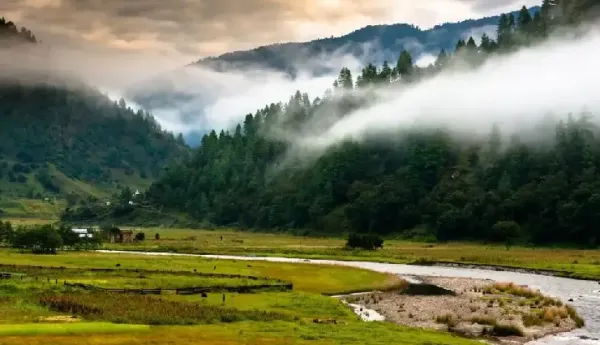
Arunachal Pradesh, with its unique cultural identity and breathtaking landscapes, stands among the most enchanting states of India. Home to numerous tribes, each with its own traditions, rituals, and celebrations, the state is a vibrant mosaic of diversity. For anyone seeking a cultural holiday in India, Arunachal Pradesh is undoubtedly a top choice.
The best time to experience the richness of this land is during its festival season. These celebrations—whether agricultural, religious, or socio-cultural—bring communities together through song, dance, prayers, feasts, and gratitude. Festivals not only strengthen bonds among people but also showcase the deep connection of the tribes with their land and traditions.
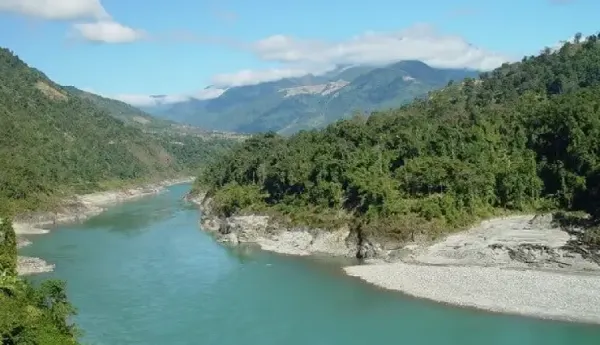
# Siang River Festival
The Yomgo River Festival, now widely known as the Siang River Festival, celebrates communal harmony in Arunachal Pradesh. Originally organized as the Brahmaputra Darshan Festival in Tezu and Pasighat, it has been observed since 2005 in Tuting, Yingkiong, and Pasighat.
This vibrant event is among the most popular festivals of the state, promoting eco-tourism and thrilling adventure activities. Visitors can witness or take part in elephant races, traditional boat races, the Mishmi mock war game (Didi), river rafting, food festivals, cultural shows, folk dances, hot-air balloon rides, paragliding, and exhibitions of traditional model houses. Additionally, handloom and handicrafts from different districts are displayed, adding to its charm.
# Pangsau Pass Winter Festival
Launched in 2007, the Pangsau Pass Winter Festival (PPWF) has quickly become one of the most loved modern celebrations of Arunachal Pradesh. Held every January in Nampong, Changlang district, this three-day festival highlights the state’s rich cultural identity.
People come together to enjoy folk dances, folk songs, and exhibitions of handicrafts and handlooms from across the state. What makes PPWF unique is its cross-border inclusivity—it offers Myanmar a platform to present its culture, fostering a beautiful exchange between the tribes of Northeast India and Myanmar.
# Ziro Festival of Music
Often called Arunachal’s answer to Sunburn, the Ziro Festival of Music is the biggest open-air music festival in the state. Held in the picturesque Ziro Valley, it is a four-day celebration that attracts music enthusiasts from across India and beyond.
The festival hosts international and Indian artists, while also showcasing folk acts from across the Northeast. For visitors, it is a blend of music, cultural learning, and four unforgettable days of celebration amidst stunning natural surroundings.
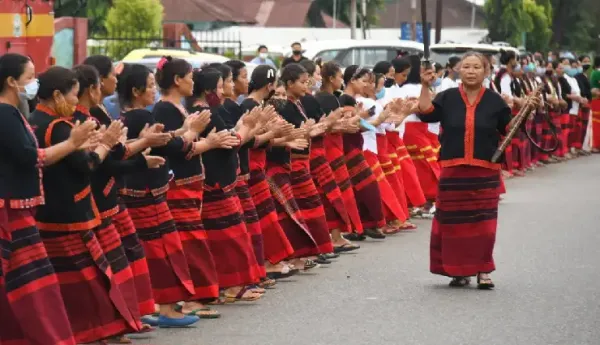
# Solung Festival
The Solung Festival, primarily celebrated by the Adi community, is an important agricultural festival of Arunachal Pradesh. Observed during the monsoon across districts like West Siang, East Siang, Lower Dibang Valley, Upper Dibang Valley, and Upper Siang, it stretches for ten days.
The festival includes rituals such as the sacrifice of animals, distribution of meat, and community feasts. Rituals like Oinnyad (sacrifice for the goddess Kine Nane), Ekob (assembling of men to make bows and arrows), and Irni (uprooting weak paddy plants to protect crops) highlight the community’s close relationship with nature and agriculture.
# Nyokum Festival
Dedicated to harmony and prosperity, the Nyokum Festival is celebrated annually on 28th February by the Nyishi tribe. Observed in districts like East Kameng, Lower Subansiri, Kurung Kumey, and Papum Pare, the name derives from Nyok (land) and Kum (people).
This two-day festival features traditional circle dances, singing, and community gatherings. The high priest conducts rituals and prayers, seeking blessings from the spirits for peace and prosperity.
# Losar Festival
The Losar Festival of the Monpa tribe marks the Tibetan New Year. Celebrated mainly in Tawang and West Kameng districts, it is among the grandest festivals of Arunachal Pradesh.
Falling between February and March, it lasts for 8 to 15 days. Families clean their homes, offer prayers, hoist religious flags, light butter lamps, and read holy scriptures. Deities are worshipped for communal well-being, and traditional food and local drinks are enjoyed. Visiting Tawang during Losar offers both cultural immersion and spiritual experience.
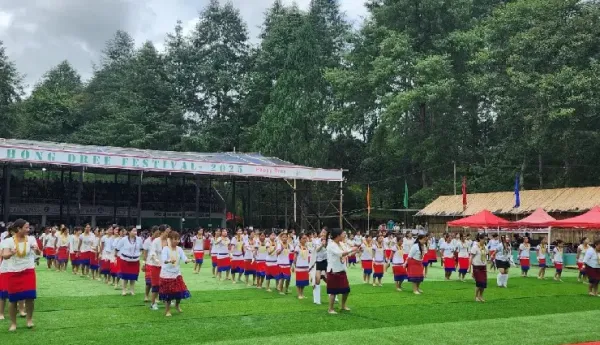
# Dree Festival
The Dree Festival, celebrated by the Apatani tribe in Ziro, is a vibrant agricultural festival marked with prayers and sacrifices. Offerings of fowls, eggs, and animals are made to deities like Tamu, Metii, Danyi, and Harniang for crop protection, fertility, and prosperity.
Local beer (Apong) is prepared in every home, and the rituals are led by the high priest (Nyibu), often conducted near the paddy fields. The festival reflects the Apatani community’s deep devotion to agricultural sustenance.
# Boori Boot Festival
The Boori Boot Festival is a joyous three-day celebration by the Hill-Miris in Upper and Lower Subansiri districts during February. It signifies gratitude for a good harvest and the arrival of spring.
People gather irrespective of caste, creed, or age to pray for prosperity and freedom from diseases. Rituals are performed by the high priest (Nibu), and the festival becomes a grand communal celebration with cultural performances and social bonding.
#Loku Festival
The Loku Festival, celebrated by the Nocte tribe of Tirap district, is held to bid farewell to winter and welcome the agricultural season. The term Loku comes from Lofe (drive out) and Rangku (season).
Observed in February for three days, it begins with animal sacrifices (Phamlamja), followed by initiation rituals for young men (Chamkatja), and concludes with communal dances and celebrations (Thanlangja). The festival strengthens social bonds and honors traditions passed through generations.
# Sanken Festival
Celebrated by the Khampti tribe of Lohit district, the Sanken Festival is one of the most significant religious events of Arunachal Pradesh. Observed from 14th February for three days, it also marks the New Year.
The main ritual involves bathing the idol of Buddha, accompanied by prayers, drumbeats, and gongs. People refrain from vices such as drinking, gambling, and animal slaughter during the festival. Sprinkling water on each other symbolizes purity and blessings. On the final day, the idol is reinstalled in the temple, and a grand community feast is organized.
-
Man duped of Rs 33.4L in digital arrest in Hyderabad

-
India has turned into ‘oil money laundromat for Kremlin’: WH trade adviser
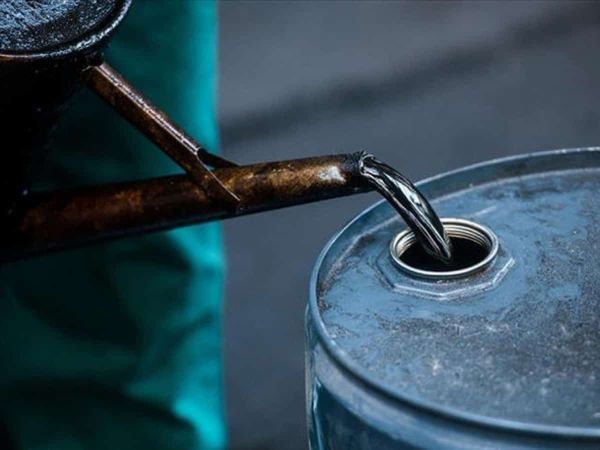
-
CJI Gavai administers oath of office to two newly appointed SC judges

-
Sensex, Nifty open marginally higher
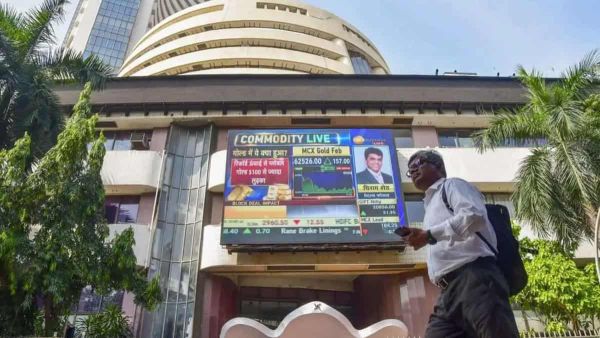
-
Adani Power gets LoA for 2400 MW greenfield thermal power plant in Bihar
